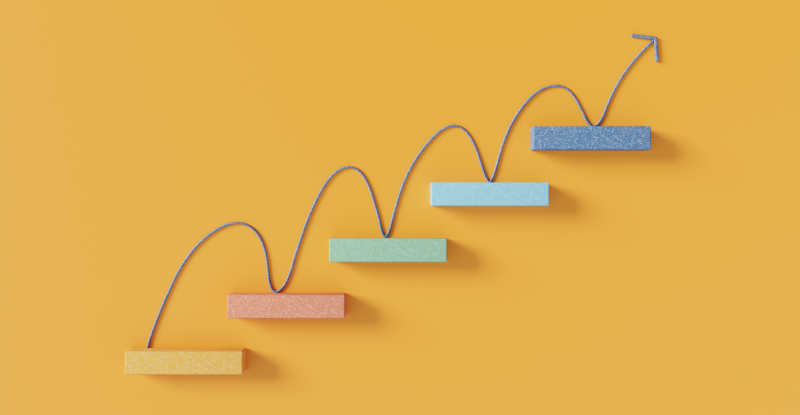
With interest rates continuing to climb, the housing market is starting to see a cooling off period. For those who’ve been saving for their first home, this could be a good time to buy if they’re financially stable. For others, this may be a good time to build up their golden nest and save enough for a down payment.
In our podcast episode with Nelson Soh, CPA, CA, co-founder of FSQ Consulting, we talked about the Tax-Free First Home Savings Account that’s expected to launch in April 2023 and other considerations that potential homebuyers should consider as we head into 2023 – a year of many uncertainties. Part of our Coffee Chats with CPABC podcast series.
This article was updated in August, 2023.
Economists are anticipating a recession in 2023. How would an economic recession affect the housing market?
Nelson: There's many different ways that an economic downturn can impact the housing market. We’ve seen real estate sales flattening since about six months ago, in line with when interest rates began to climb. And certainly as a result, interest rates have been on the forefront of the housing market news.
The real estate market is generally slower in the fall, but we are coming off a really hot seller's market from about six months ago. In the lower mainland, for example, it was fairly common to see properties sell above the list price earlier in 2022. And although we've seen transaction volumes slow down over the last few months and market demand for certain types of property has decreased, it's really important for homebuyers to factor in all costs and all types of scenarios when trying to enter any type of real estate market. Some sample costs are strata fees, special levies, property transfer tax, closing and legal fees, as well as other life expenses like your children’s education, student loans, or vacation plans.
Therefore, the biggest thing for homebuyers to consider when entering a market like this is monthly cash flow. If you're considering buying or taking on a mortgage, you'll want to figure out exactly what your mortgage payments will look like and budget for the rest of your life expenses.
August 2023 update: While increased interest rates have led to lower housing market sales, housing prices have largely remained steadfast. This is also due to continued low inventory. Properties considered to be on the affordable end of the scale continue to sell for their listed price or higher. Another challenge to prospective home buyers has been banks tightening their lending rules.
Tell me about the Tax Free First Home Savings Account that’s likely to be launched in April 2023. How can first-time homebuyers take advantage of this?
Nelson: The government has proposed the introduction of the Tax-Free First Home Savings Account (FHSA). This is a new registered plan that gives prospective first-time homebuyers the ability to save $40,000 on a tax-free basis. It’s similar to a Registered Retirement Savings Plan (RRSP), where contributions are tax deductible. However, any withdrawals from the FHSA, including investment income, would be non-taxable, which is similar to the Tax-Free Savings Account (TFSA). With this plan, Canadians should be able to open and contribute up to an $8,000 annual contribution limit, with a lifetime contribution limit of $40,000 to their FHSA.
As a result, the new FHSA is a great tool because anybody who uses it can effectively get a tax deduction when contributing to the plan. And then when you withdraw any amount from it, including your investment income, it's tax-free. I think that this should be the first step for any homebuyers that are saving up to purchase a home.
Aim for $8,000 per year going into your FHSA, and if you're able to save more than that, then it should go into some sort of savings account that's readily available when you plan to purchase the property.
August 2023 update: The FHSA was launched on April 1, 2023. Anyone looking to purchase a first home should consider opening a FHSA. The benefit of putting money into a FHSA is that your funds will grow, instead of just sitting as cash in a non-investment account. Remember, time in the market is an important factor when investing, so the sooner you can invest into a FHSA, the better.
Despite higher interest rates and low housing supply, why might it actually be a good time for some to buy?
Nelson: I think it's a great time to buy right now because the market has shifted out of a seller's market. Sellers had the upper hand about six to eight months ago when properties were selling well above the listed price, but that's not the case today. As market volumes have cooled down a little bit, it's probably a great time for anybody looking to get into the market for a new home to live in or for long-term investment properties. There's always opportunities if you have a solid financial foundation, solid financial understanding, and a good realtor on your side.
Warren Buffett once said, “Be fearful when others are greedy, and be greedy when others are fearful.” I believe that all long-term investors will be rewarded if they stay aligned with their goals and trust the process. Building wealth takes time, and it involves some calculated risk-taking. Is it the right time for you to get into the market? I'm not sure, but if the numbers make sense and if you trust your intuition and it is the right decision, then I would say go for it.
August 2023 update: Despite high interest rates right now, it’s still a great time to buy if you’re able to purchase property below market value, or if you’re able to bid on a property below its asking price and win. Saving $10,000 - $20,000 on the purchase price could be well worth it in the long run, as interest rates may decrease again in the coming years.
What should homebuyers be thinking about when they need to decide whether or not they should get a fixed or a variable mortgage?
Nelson: The short answer is it's whatever works for you based on your own risk tolerance. But the technical answer, is it's best to speak with your mortgage advisor or your mortgage broker about where they feel mortgage rates are moving in the next six months, 12 months, and 24 months. They are the experts on the front lines. And getting multiple opinions from multiple experts is probably the best thing you can do to determine if you want to go fixed or variable.
The main difference between a fixed and variable mortgage is that the rate on a fixed-rate mortgage stays the same during the term of a mortgage, whereas the rate on a variable mortgage moves with the Bank of Canada prime rate. Fixed rates are great because they give you consistency in knowing what your mortgage rate is for the term. Whereas variable rates can be great as well, because when rates drop, you enjoy a lower interest rate; but when rates go high, you’ll see your monthly payments go up.
Current homeowners that are on variable rates are seeing their monthly payments significantly increase as prime rates also increase. What this means is that it's going to impact the amount of disposable income that homeowners would have each month.
Specifically, in a time like we're in right now, you may hit what's called the trigger point, where your monthly payments only cover the interest portion of the mortgage. If this happens and you're on a variable term, your lender may ask you to pay a lump sum just to catch up, or you may be asked to increase your monthly payments based on the revised rates.
Homeowners that are on fixed-rate mortgages might have a little bit of breathing room right now, but as they enter their own renewal periods, they might be thinking twice before spending on any big purchases like vacations, cars, etc.
Visit our personal finance section for more tax-related tips.
Vivian Tse is director, communications, at CPABC.



